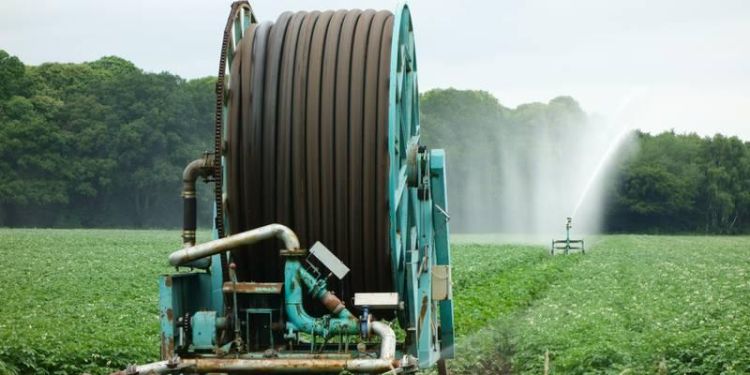Critical Zones Observatories

The challenge of growing enough food to sustain an ever-expanding population has led the Chinese government to look at creative solutions to reform farming in the country.
A particular challenge is tackling the country's increasing reliance on mineral fertilisers to maximise crop yield. These fertilisers are produced industrially at a huge energy cost; they are one of the biggest contributors to greenhouse gases from any agricultural process. Not only that - they contain metals that can remain in the soil, or pollute streams and groundwater, posing health risks as they accumulate over time.
A new model field observatory, called a Critical Zone Observatory, is now being established on the southern side of China's Yangtze River, near Ningbo city, to develop viable alternatives to the use of mineral fertilisers - and methods to convince farmers to adopt them.
The Ningbo observatory, led by Professor Steve Banwart from the University of Leeds and Professor Yongguan Zhu from the Chinese Academy of Science Institute for Urban Environment, is part of a network of 30 CZOs worldwide supported by organisations such as the US National Science Foundation, The German Helmholtz Foundation, the French Centre Nationale de la Research Scientifique and the European Commission. Professor Banwart believes these centres could hold the key to a step change in farming practice - opening the door to improved agricultural yield and lower environmental impact not just in China, but in other parts of the world too.
Critical Zone Observatories attract researchers from a variety of different disciplines who can carry out basic and applied research into the Earths so-called Critical Zone - the thin layer between tree tops and groundwater sources within the Earth's crust that provides essential resources to sustain life, not least food crops and drinking water.
Importantly, the Ningbo centre is set up not just to carry out basic, or even applied research, but also to develop and carry out commercial development and testing. The goal is to remove barriers to commercial adoption by demonstrating practicality of innovative practices and products, testing supply chains and demonstrating market viability.
At the research centre in Ningbo, which is supported by the Newton Fund, researchers will develop a viable supply chain of organic fertilisers using pig slurry and wastewater sludge from urban centres. The challenge is to demonstrate, initially, that these new products work. They must show, too, that they are safe to use, that production methods will reduce greenhouse gases, and that the fertilisers will reduce soil and water contamination.
Then the researchers need to convince farmers that their yield will be unaffected or improved by adopting the new fertilisers and that they will be able to access sufficient product at a reasonable price.
"China has huge ambitions to produce enough food from its own resources to feed its population," says Professor Banwart. "Because of this, the government is ready to support the kind of changes we're working on at Ningbo. But we have to demonstrate the viability to farmers of making a transition to organic fertiliser."
Professor Banwart believes that promoting links between the Critical Zone Observatories, as well as with other field sites around the world, could create a research network able to transform farming methods and food production and distribution.
"Because of the ever-increasing intensity of land use for food production and because of the pressures of climate change, we're going to have to adapt farming practices. But in order to do that successfully, we need to make the commercial case to farmers to make those changes," says Professor Banwart. "Farmers will either need to be convinced that they can increase their income, or that the disruption to their farming methods will be minimal. These observatories that we're establishing are equipped to offer a full picture, to minimise the barriers to change."
The Critical Zone Observatories network provides ready links with wider UK and global networks of field sites. The N8 universities consortium, within which Professor Banwart leads the Resilient Food Supply Chains theme, also offers regional links through the N8 Agrifood Resilience programme.
A network of five research farms is already carrying out research within the AgriFood programme and Professor Banwart's goal is to work with colleagues in the N8 consortium and link these to the other CZO sites around the world. The University of Leeds Farm, for example, hosts a number of research projects and offers an opportunity to develop a regional CZO to support agricultural and environmental research. Global collaboration offers a more holistic understanding of farming methods and food production in order to support change that is both effective and widespread.
He explains: "So much of our food production around the world is interlinked in a vastly complicated network of supply and demand, production and consumption. We need to minimise the resource usage required to maintain this network, whether that's reducing the amount of water or pollution in food production, reducing the carbon footprint of production and distribution or - as in the case of the project in China - reducing the dependence on CO2-emitting fertilisers required to maintain production.
"To do that, we need to link many different disciplines, including business and supply chain management, environmental change and human health. As part of the N8 group of universities, we're in a great position to harness a real depth of expertise in a joined-up way and apply that to the whole of our food supply system."




